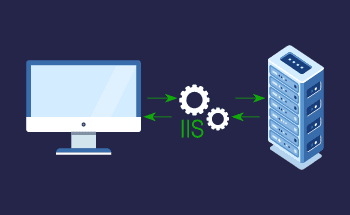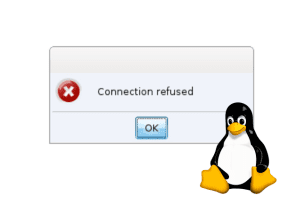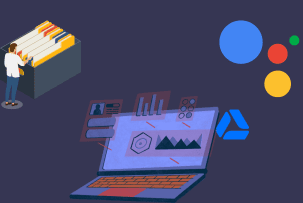Deployment of Microsoft’s .NET Framework (Mono) on Debian 12
16:50, 29.02.2024
Mono framework is an open-source variant of the .NET framework from Microsoft. It provides the foundation for developers to build and run different apps on different operating systems. C#, Visual Basic, and F# programming languages can be used to develop apps with Mono. Class libraries that are a part of Microsoft's .NET are also available on Mono.
Let's dive into the steps for deploying Microsoft's .NET Framework (Mono) on Debian 12.
Implementing Microsoft's .NET Framework (Mono) on Debian 12
Mono is an example of a cross-platform environment available on Windows, macOS, Linux, and other operating systems.
The Mono version of the .NET framework offers excellent development tools, high performance, cross-platform compatibility, IDE support, and a large developer community.
But without further ado, let's dive into the guide on installing Mono Microsoft's .NET Framework on Debian 12.
1. Updating the Debian 12 System
Make sure to update your packages by updating your Debian 12 operating system. You can initiate the update with the following command:
sudo apt update && sudo apt upgrade -yOnce you update the system packages, we can move to the next step - installing dependencies.
2. Acquisition and Installation of Essential Dependencies
You need to install the following dependencies before Mono installation on Debian 12. For this, run the following command:
sudo apt install gnupg dirmngr apt-transport-https ca-certificates -yOnce the dependencies are installed, now we can proceed with installation.
3. Adding the Mono GPG Key and Repository
To add the Mono GPG key to the Debian 12 system, run the following command:
sudo apt-key adv --keyserver hkp://keyserver.ubuntu.com:80 --recv-keys 3FA7E0328081BFF6A14DA29AA6A19B38D3D831EFOnce the Mono GPG key is on the machine, the next step would be connecting to the Mono repository that offers the updated packages:
sudo sh -c 'echo "deb https://download.mono-project.com/repo/debian stable-buster main" > /etc/apt/sources.list.d/mono-official-stable.list'
sudo apt update
If you want to make sure that Mono is in the needed repository, run the following:
sudo apt search monoNow, we can move on to installation of the Mono framework.
4. Installation of the Mono Framework
With the correct repository installation, you can install the Mono framework next. To start, run the following command:
sudo apt install mono-complete -yVerify the Mono version through
1.$ mono --version
2.$ sudo apt-cache policy mono-complete
If you get the information about the Mono version, a Mono framework is installed.
5. Create a Test Application in Mono
Launch any text editor to generate a Mono application and create a file called hello.cs. In this tutorial, we are using the Vim text editor:
vim hello.csInsert the following:
using System;
public class HelloWorld
{
public static void Main(string[] args)
{
Console.WriteLine ("Hello World, it's Mono Framework!");
}
}
Mono will convert the #C file into an executable, so now we're going to compile the code into bytecode:
mono-csc hello.csThe Mono compiler will be used with the mentioned command. The compiler takes the source code and creates a .exe file in response. Confirm that the Mono makes a .exe file from the source code through:
*$ ls -l .exe
-rwxr-xr-x 1 techviewleo techviewleo 3072 Nov 4 22:52 hello.exe
To run the app, use:
$ mono hello.exe Hello World,it's Mono Framework!
6. Optimizing Mono Performance on Debian 12
If you want better performance of the Mono framework on Linux Debian 12, consider using the following apps developed for Mono for more comfortable work:
- MonoDevelop or Xamarin Studio, which are IDEs for developing Mono apps in Linux.
- MonoUML, which is an editor for creating diagrams with the UML standard.
- VMware, which is a virtualization tool.
In the process of development of a cross-platform application, also consider the following:
- Linux and its distributions are case-sensitive in file and directory names, so consistency with the terms used is necessary.
- The path separator in Windows () is different from Linux (/), so it is recommended to use the Path. Use the DirectoryPathSeparator API to get the correct separator when running the application.
- If libraries other than CLI are used (for example, C library, C ++ library, etc.), using p / Invoke, ensure that the library exists in the different environments in which the application will be executed.
These tips will ensure that Mono functions correctly on Debian 12 and that your product suits multiple platforms.
7. Security Measures for a Mono-Enabled Environment
It is important to adopt certain security practices to ensure the Mono environment is secure. Since Mono is open-source software, ensuring security is essential for maintaining the application's proper functioning. Here are some security measures for a Mono-enabled environment:
- Update Mono regularly. Always upgrade to the current stable Mono version by updating security patches and covering vulnerabilities.
- Promote network security. Provide network security by using firewalls and intrusion detection solutions; they should be utilized to track and limit inbound network traffic. Also, remember to encrypt data in transit secure communication protocols (e.g., TLS/SSL).
- Control access. The essential minimum permissions should be applied as far as users and applications are concerned. Control who has access to resources found in the environment through proper authorization policies.
- Perform frequent monitoring. Review logs frequently for any unusual activities or suspects.
- Update Dependencies. Remember to keep updating and patching third-party libraries and dependencies on your machine for Mono if there are any security risks.
- Create an incident response plan. Formulate a comprehensive incident response plan and be ready for effective reaction to security breaches.
By adopting the mentioned security measures, you will undoubtedly increase the protection of your Mono-Enabled Environment. Review the steps periodically, taking into account emerging security issues.
Conclusion
Having Microsoft's .NET Framework, and its Mono version specifically, on Debian opens up new possibilities for app development. It provides users with a versatile set of tools and capabilities. When you finalize the installation process, you can develop C# applications.


